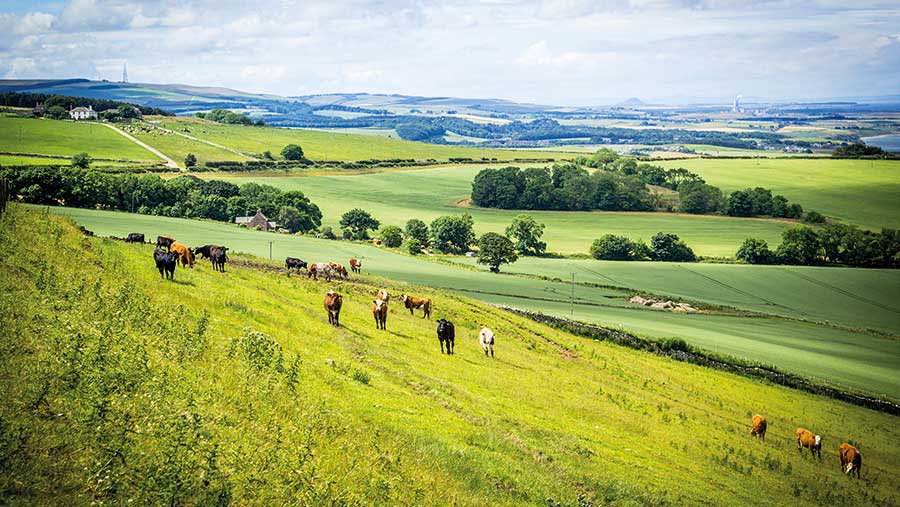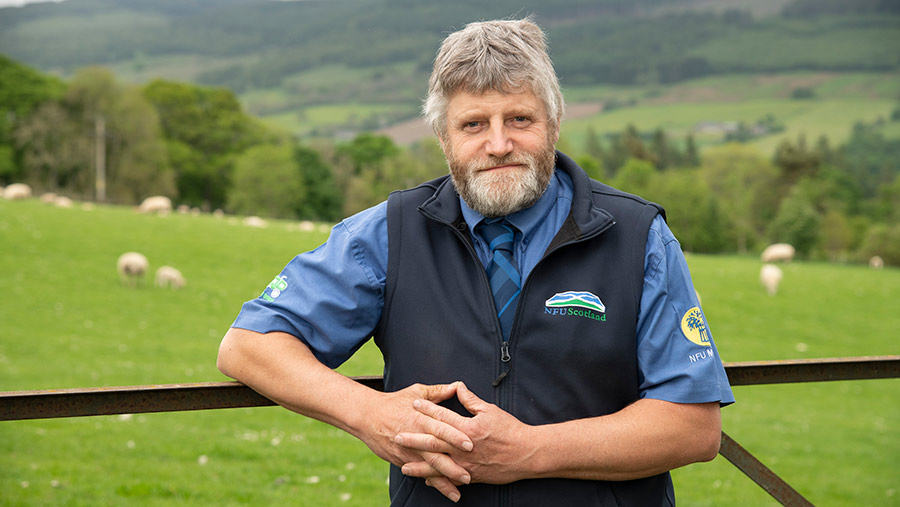Farmer-led approach to underpin Scottish ag strategy
 © Adobe Stock
© Adobe Stock Future environmental schemes in Scotland will be designed around recommendations put forward by farmer-led groups, the Scottish government has announced.
Five Farmer-led Climate Change Groups (FLGs), set up by the Scottish government, published recommendations for suckler beef, dairy, pigs, arable and upland farms last March.
Each group produced proposals for support schemes that could deliver a profitable agricultural sector, while meeting output and environmental targets (see “What might be included in the schemes?” panel).
See also: Poots launches framework for NI future farming policy
The Scottish government has now announced the sector recommendations will be taken forward by a single group – the Agriculture Reform Implementation Oversight Board.
The board will be chaired jointly by NFU Scotland (NFUS) president Martin Kennedy and Scottish rural affairs secretary Mairi Gougeon.

NFU Scotland president Martin Kennedy © NFU Scotland
A government spokesman said the group would place farmers at the heart of a future support framework for an economically and environmentally sustainable agriculture.
Timescales for the group are short.
The Scottish government has set a target for a preliminary package of funded measures to be submitted before November’s UN climate change conference (COP26) in Glasgow.
Farmer pilots
The spokesperson said the first farmers should be recruited to take part in a national test scheme this autumn. After that, a funding package of environmental measures could be launched in spring 2022.
Of the five original FLGs, suckler beef has made most progress towards defining a workable scheme. The outline suckler group plan covers all beef production systems and farmers in the sector are expected to be first to be recruited.
Ms Gougeon praised the progress of the FLGs.
“The farmer-led groups have provided us with a strong footing for refocusing the sector and shifting to more environmentally friendly practices,” she said.
“The establishment of the board will help us to make early progress in delivering emissions reductions.”
Ms Gougeon also announced a consultation exercise building on the recommendations from the FLGs.
The paper sets out key questions on the recommendations which are intended to inform wider work on the development of agricultural policy and the replacement of CAP funding.
This will help ensure everyone can play their part in shaping the future of farming, food production and land use in Scotland, Ms Gougeon suggested.
The Agricultural Transition in Scotland – first steps towards our national policy consultation, is open until 17 November 2021.
Clear commitment
NFUS president Mr Kennedy also praised the work of the FLGs.
“It is welcome progress and a clear commitment to delivering on industry-led change,” Mr Kennedy said. “Timescales have been set for the implementation group to deliver a national test programme and I want to see that in place and on time.”
But he warned that across all sectors, there would be challenges in agreeing detail within the packages.
“A future agricultural policy that delivers for Scotland is the biggest priority. But I won’t hesitate to walk if I believe our ambitions are being stifled or if the drive to put in place what our fantastic farming industry needs, starts to fail.”
What might be included in the schemes?
The Farmer-led Climate Change Groups have identified several key criteria that should form the baseline minimum requirements. These would be carried out by participating businesses to ensure a common starting point and basis throughout the scheme.
With variations according to particular sectors these requirements could include:
- Completing a farm business carbon audit
- Outlining a nutrient management plan
- Carrying out soil, forage, manure and fertiliser analysis
- Outlining a feed ration plan
- Completing a breeding and marketing plan
- Employing Continuous Professional Development, including an annual meeting with a competent farm business adviser to assess business progress
- Data sharing and collaboration
- Identifying and committing to management aimed at enhancing biodiversity
- Maintaining appropriate assurance accreditation
- Sustainable crop management
- Uptake of precision farming and use of technology
- Soil improvement
- Tighter control of energy use
- Adopting improved plant health and breeding techniques
- Enhancing biodiversity
- Encouraging producer groups with the potential to improve market development.
